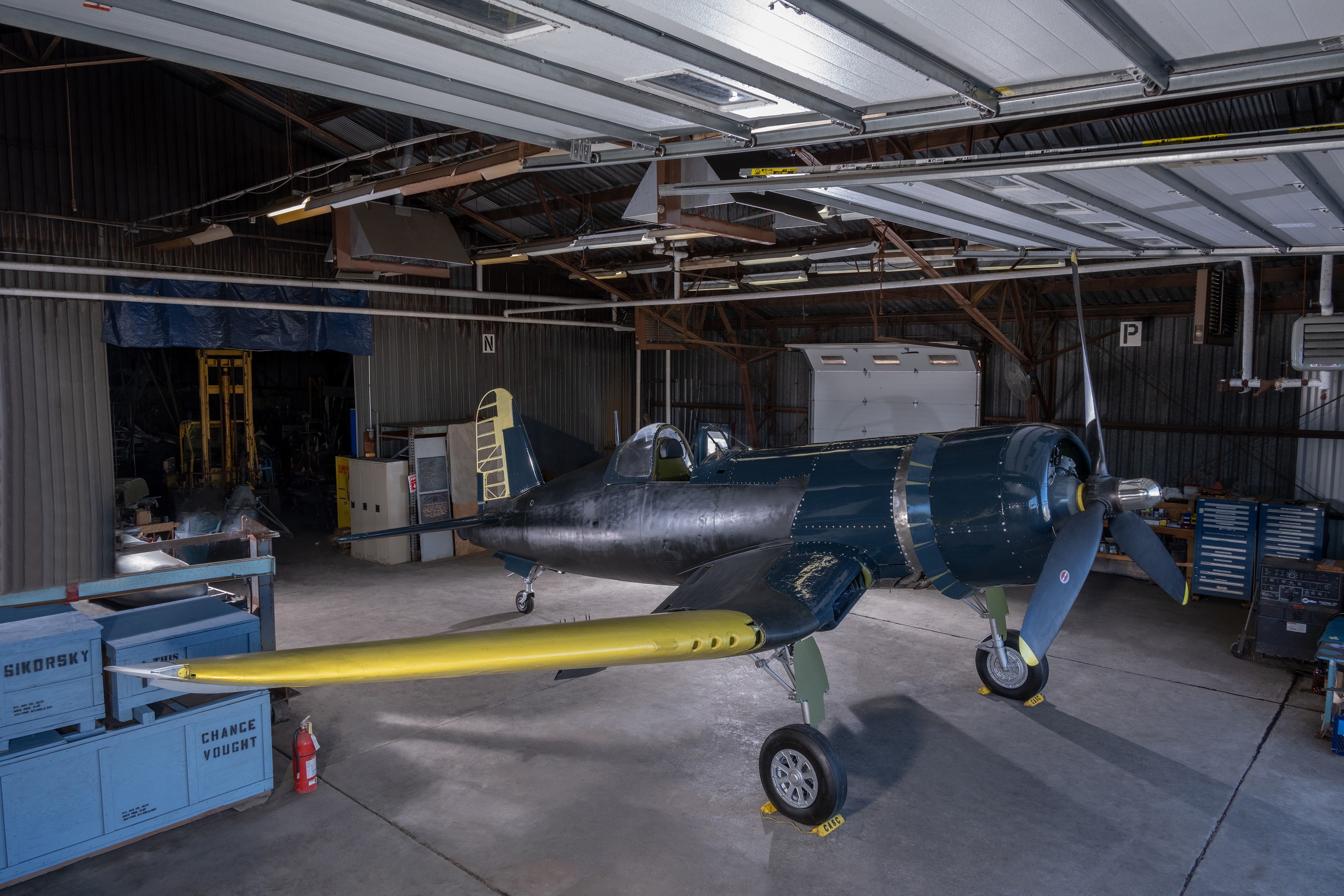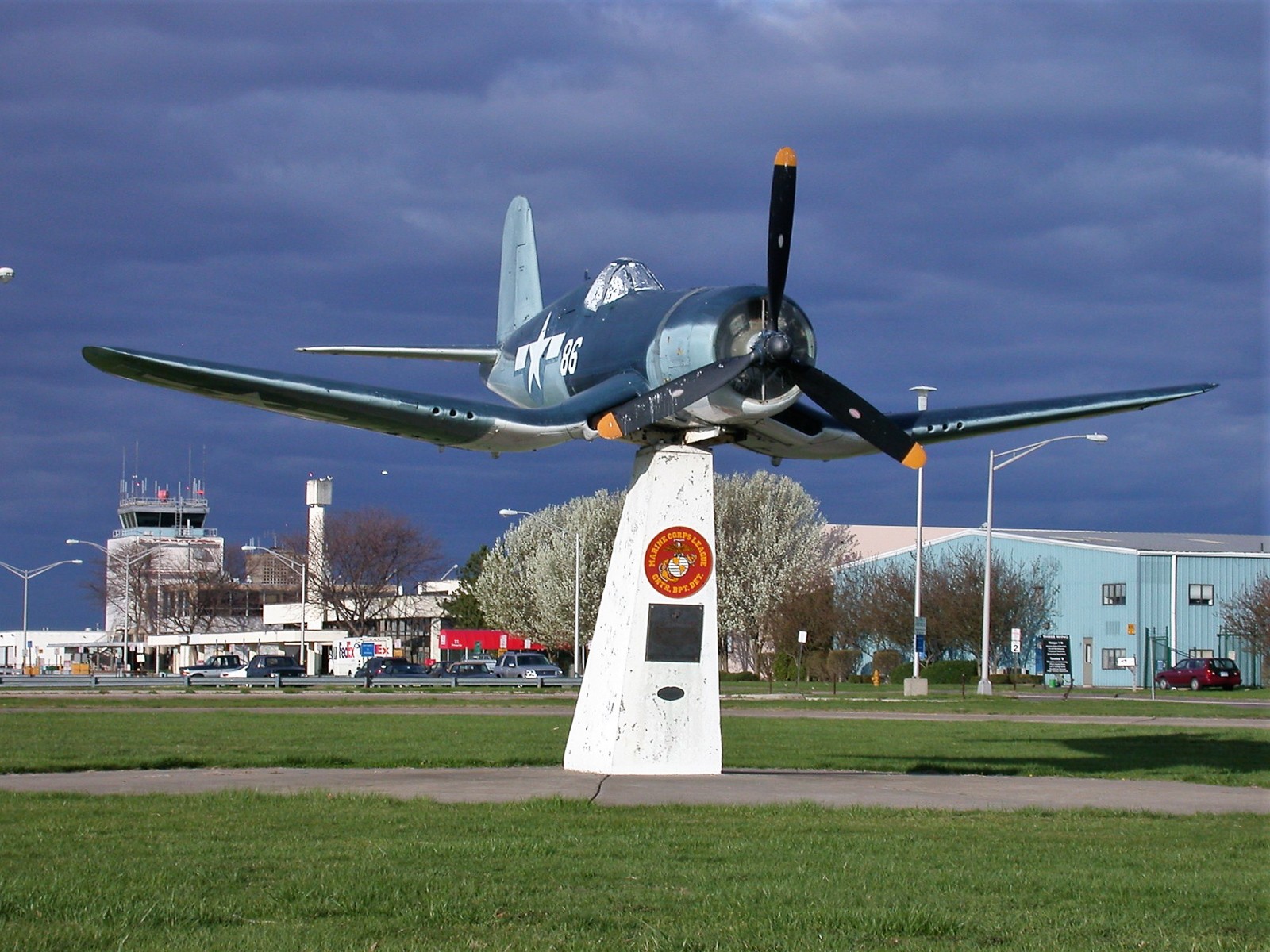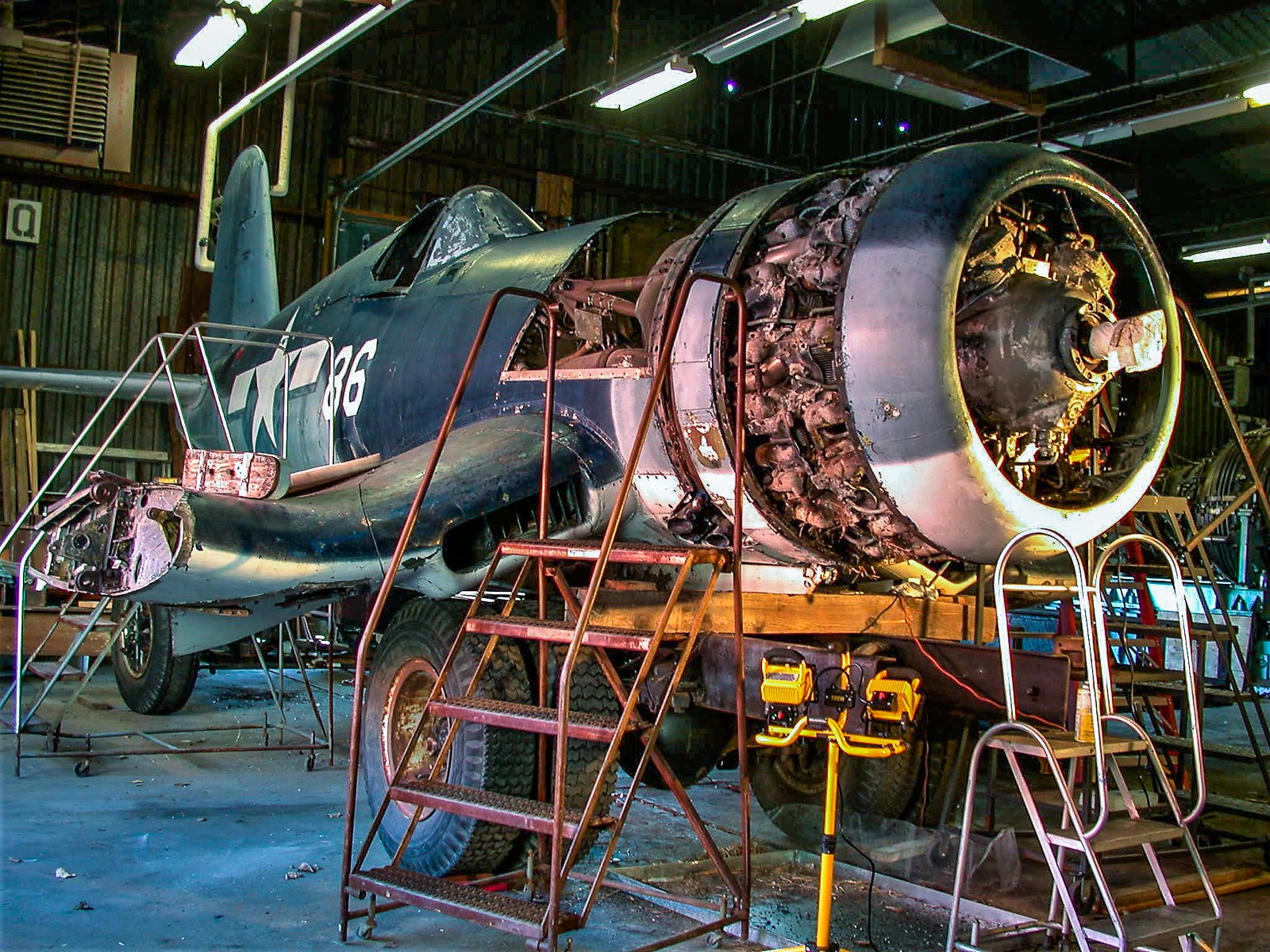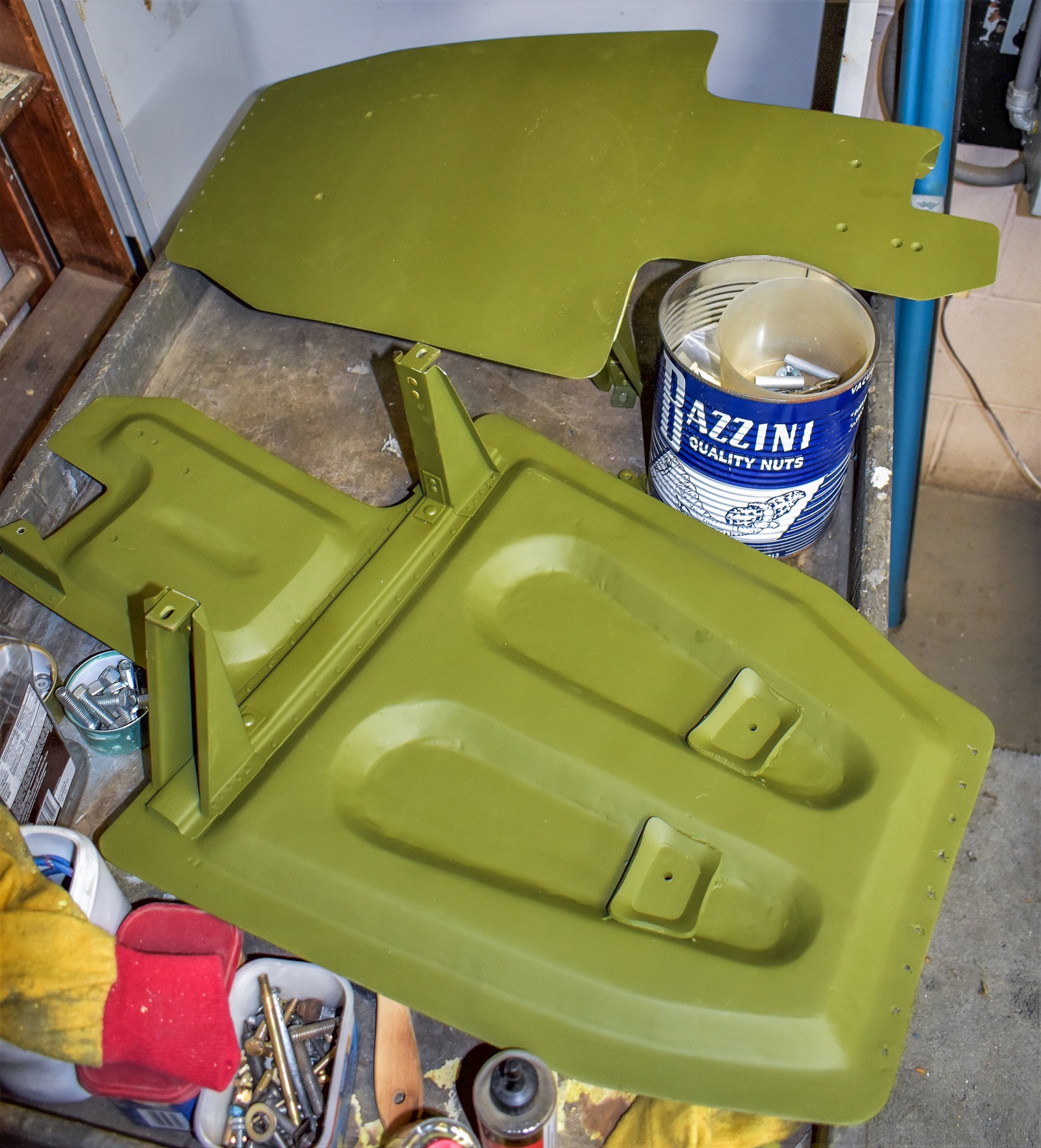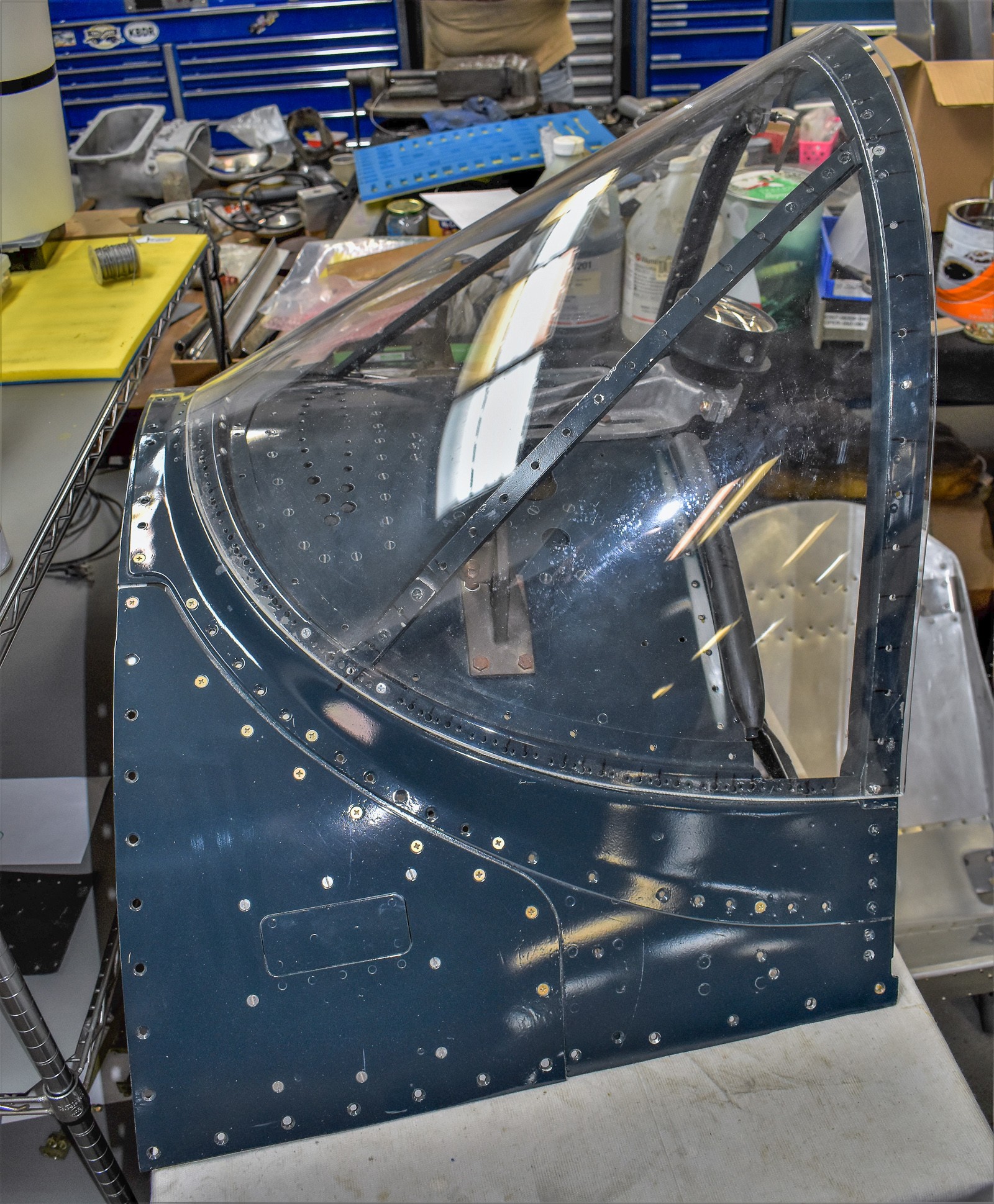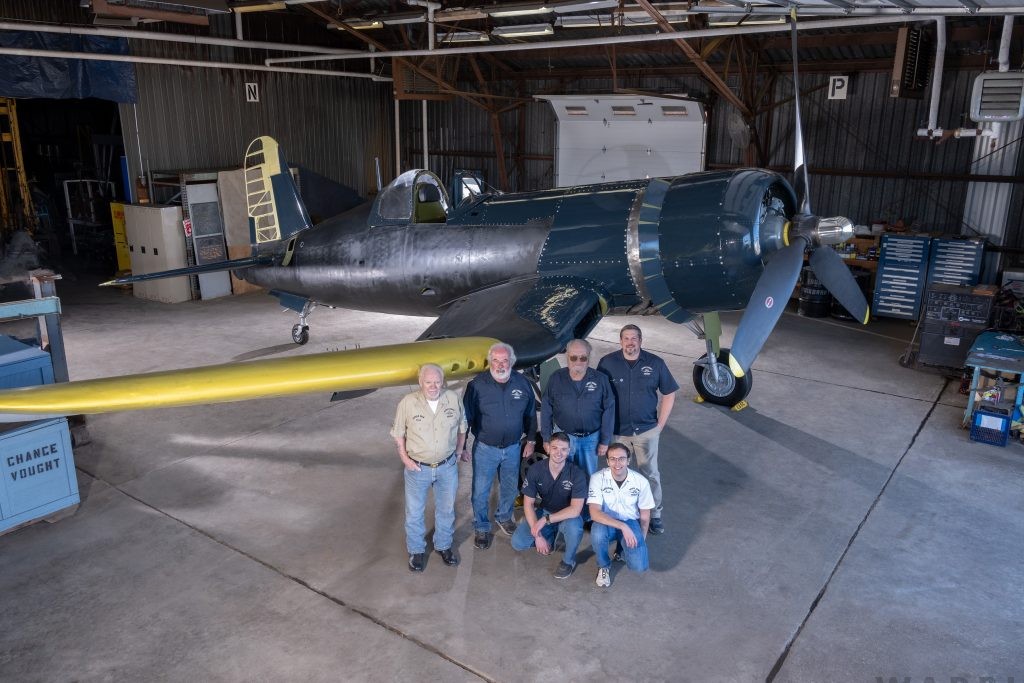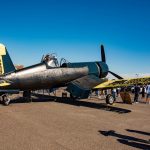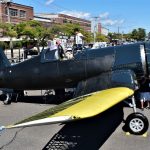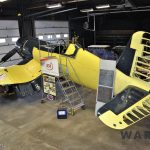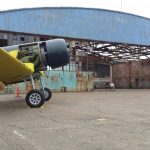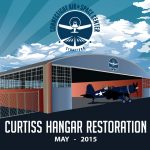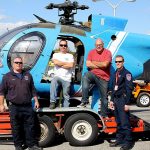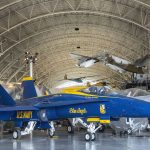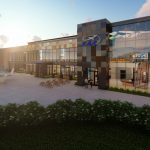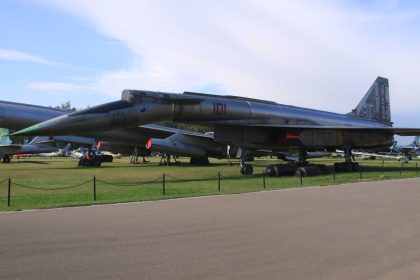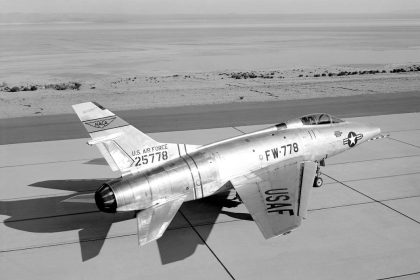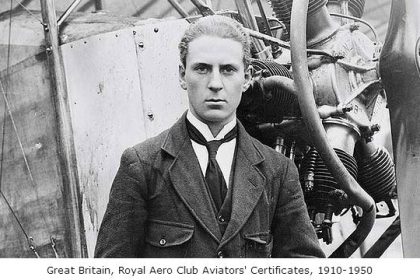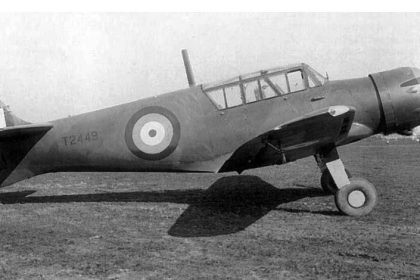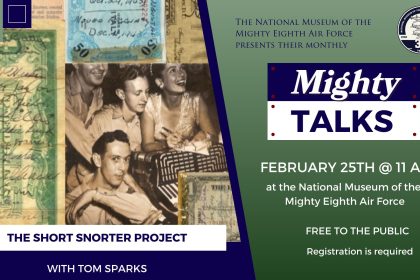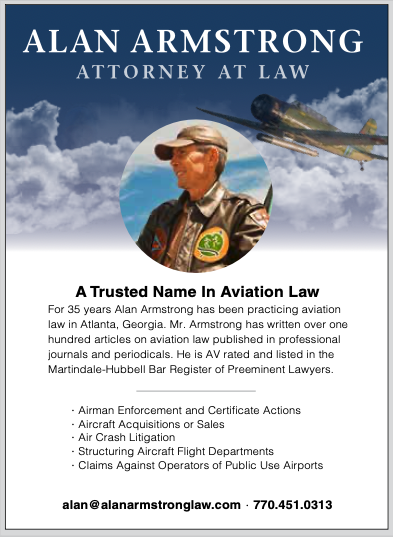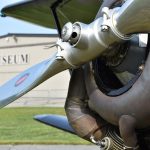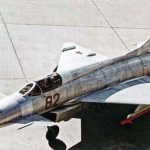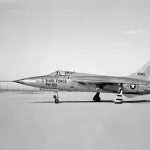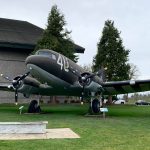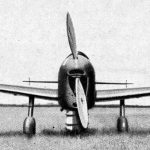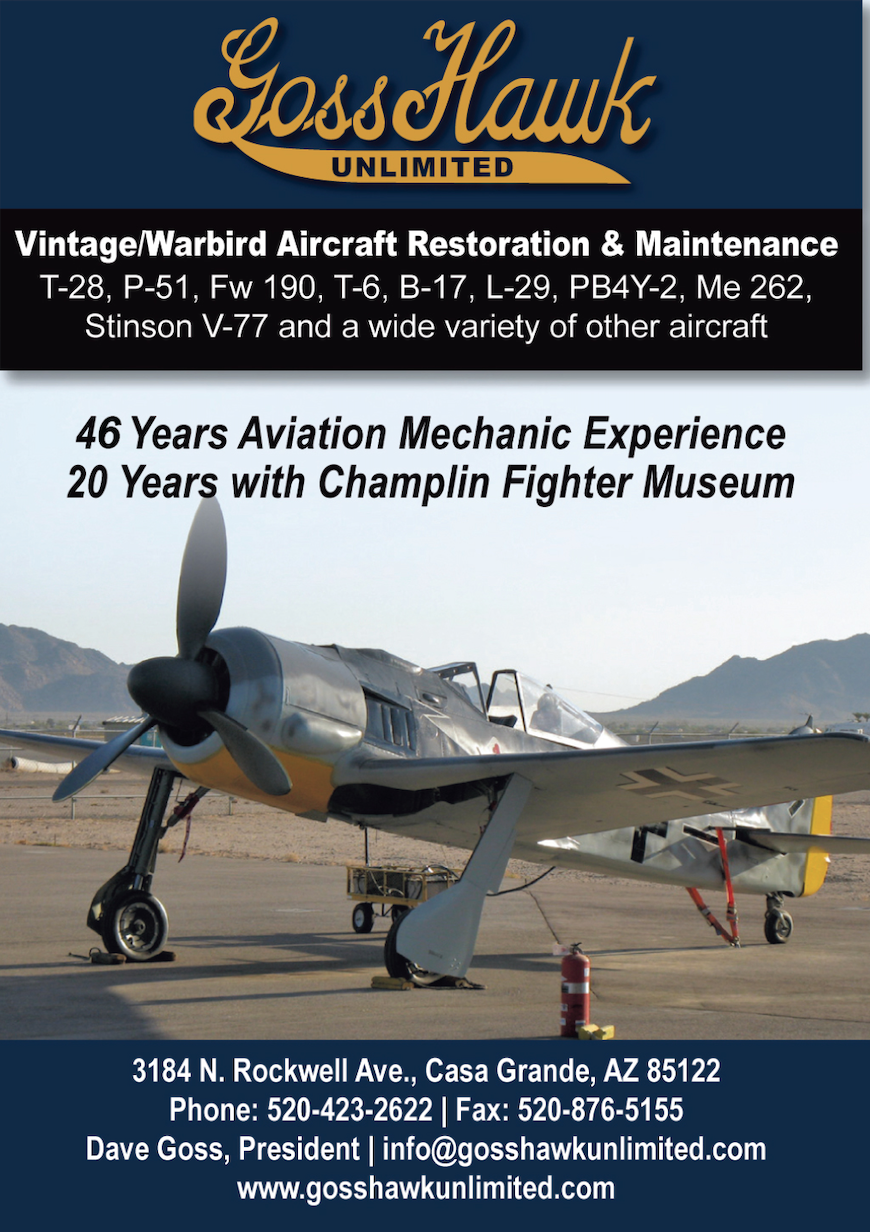by Jerry M. O’Neill
In 1971, after her journey from San Salvador to the USA, FG-1D Corsair Bu.92460 experienced the indignity of major parts removal, as part of a weight reduction effort to enable her new duty as a pole-mounted gate guard at the Igor I. Sikorsky Memorial Airport in Bridgeport, Connecticut. The monument team gutted her cockpit, then removed her landing gear, flaps, gun-bay doors, ammo cans, and dive brakes, fairing the openings over with simple sheetmetal structures. After repainting the airframe, the team bolted her into her position atop a concrete plinth beside the airport terminal, where she endured the coastal salt marsh air on the shores of Long Island Sound for the next several decades.
In July of 2008, realizing that the corroding Corsair might soon topple off her perch, the town decided to remove the airframe from outside display and put her into the care of the Connecticut Air and Space Center (CASC) from across the airfield in Stratford, Connecticut. Museum volunteers immediately got to work restoring the forlorn airframe. Now, thirteen years later, the transformation of this once corroded carcass has been nothing less than amazing. The work which CASC volunteers have performed, helped along with a string of outside donations and assistance, has helped to preserve a Connecticut icon via what can only be described as a “shoestring budget”.
“With a lot of effort, over a long time, we’ve managed to find everything that was missing,” states Mark Corvino, CASC’s Corsair Restoration Manager, “and if it couldn’t be found, we made it from scratch!” He points to the latest items fabricated; the two dive brakes which attach to the main landing gear struts. “The skill and workmanship of our volunteers continues to amaze me,” Corvino adds proudly. CASC currently has about nine volunteers, ages 24 to 85, working on the Corsair only about 12 hours each week.
Items to be restored or installed within the year are brand new canopy and windscreen Plexiglas sections, new-build dive brakes, new tires (donated by Goodyear), ailerons and control rods installed, gun bay doors finished and installed, hydraulic lines sorted out, and some smaller cockpit details that need to be reattached. The control surfaces are being sent out for fabric covering and once everything is installed in the outer wing panels, they will also undergo fabric recovering.
“COVID slowed everyone here down by about 18 months,” Corvino lamented, “and a lot of our time has been put into our May 29, 2021, partial opening of the 1929 Curtiss Hangar, but the Corsair is on track to be fully painted once the fabric comes back.” Corvino also stated that the restoration work on the main section of the 1928-vintage Curtiss Flying School Hangar should be completed in about 18 months. This hangar will eventually become the museum’s show-piece facility.
Talking about how the Corsair has come together, and what it involved, Corvino notes, “Just to see what our skilled and dedicated volunteers have accomplished is truly amazing, and we are extremely grateful to the many vendors, companies and individuals that have supported the restoration,” Corvino emphasizes, “It would not have been able to be done without them!”
Next year should see the finished Corsair finally on display. She will serve as a magnificent tribute to those who flew and maintained the type in war and peace, not to mention the many thousands who toiled to design, build and test them at the old Chance-Vought factory beside the airport.
For more information or to donate, please visit www.ctairandspace.org
Many thanks indeed to Jerry O’Neill for this restoration report, and to Roger Salls for his two beautiful portraits of the nearly restored FG-1D Corsair Bu.92460!







